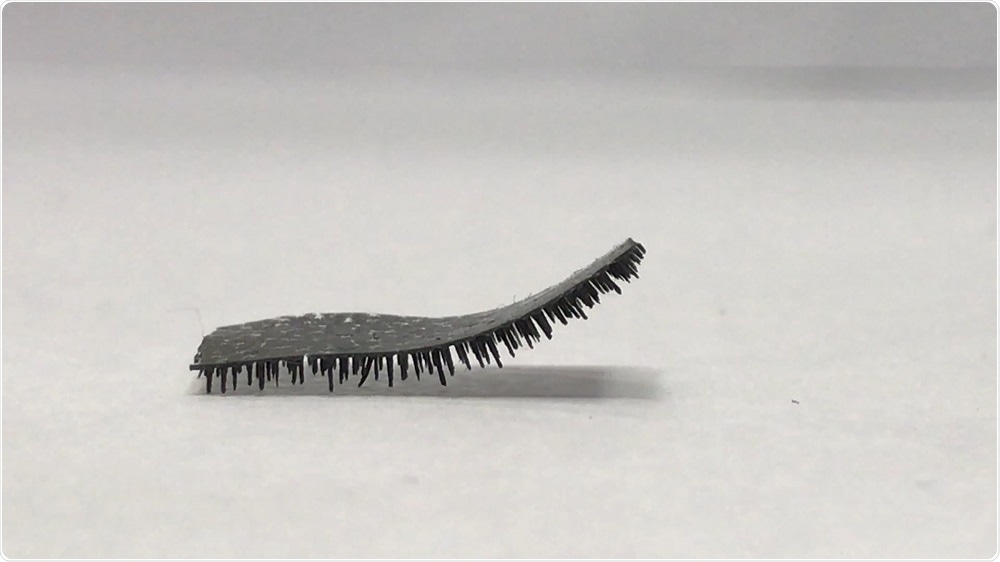Researchers at the City University of Hong Kong (CityU) have developed a tiny, soft robot that can carry heavy loads and is capable of adapting to adverse environments.
 Image Credit: City University of Hong Kong
Image Credit: City University of Hong Kong
The caterpillar-like robot could be used to advance drug delivery technologies.
Many researchers globally have been working to develop soft “milli-robots,” but this new robot has “multi-legs” that significantly reduce friction and enable ease of movement within mucus and blood.
The hundreds of legs, which are less than 1mm in length and look like short tiny hairs, were designed based on studies of hundreds of ground animals and, in particular, studies of the ratio between leg-length and the amount of space between the legs.
Most animals have a leg-length to leg-gap ratio of 2:1 to 1:1. So we decided to create our robot using 1:1 proportion.”
Dr. Shen Yajing, Study Leader
As reported in the journal Nature Communications, the robot is controlled using a magnetic manipulator and can move in propulsed and inverted patterns using its front feet to push forwards and standing up alternately on its left and right feet as it advances.
The rugged surface and changing texture of different tissues inside the human body make transportation challenging. Our multi-legged robot shows an impressive performance in various terrains and hence open wide applications for drug delivery inside the body"
Wang Binjun, Co-author
Tests also showed that the robot can carry 100 times its own weight, which is the equivalent of a human being able to lift a 26-seater bus.
“The amazingly strong carrying capability, efficient locomotion and good obstacle-crossing ability make this milli-robot extremely suitable for applications in a harsh environment, for example delivering a drug to a designated spot through the digestive system, or carrying out medical inspection," says Yajing.
The research team is now further developing and refining the robot and looking for biodegradable materials, new shapes and extra features that can be added.
We are hoping to create a biodegradable robot in the next two to three years, so it will decompose naturally after its meds delivery mission."
Dr. Shen Yajing